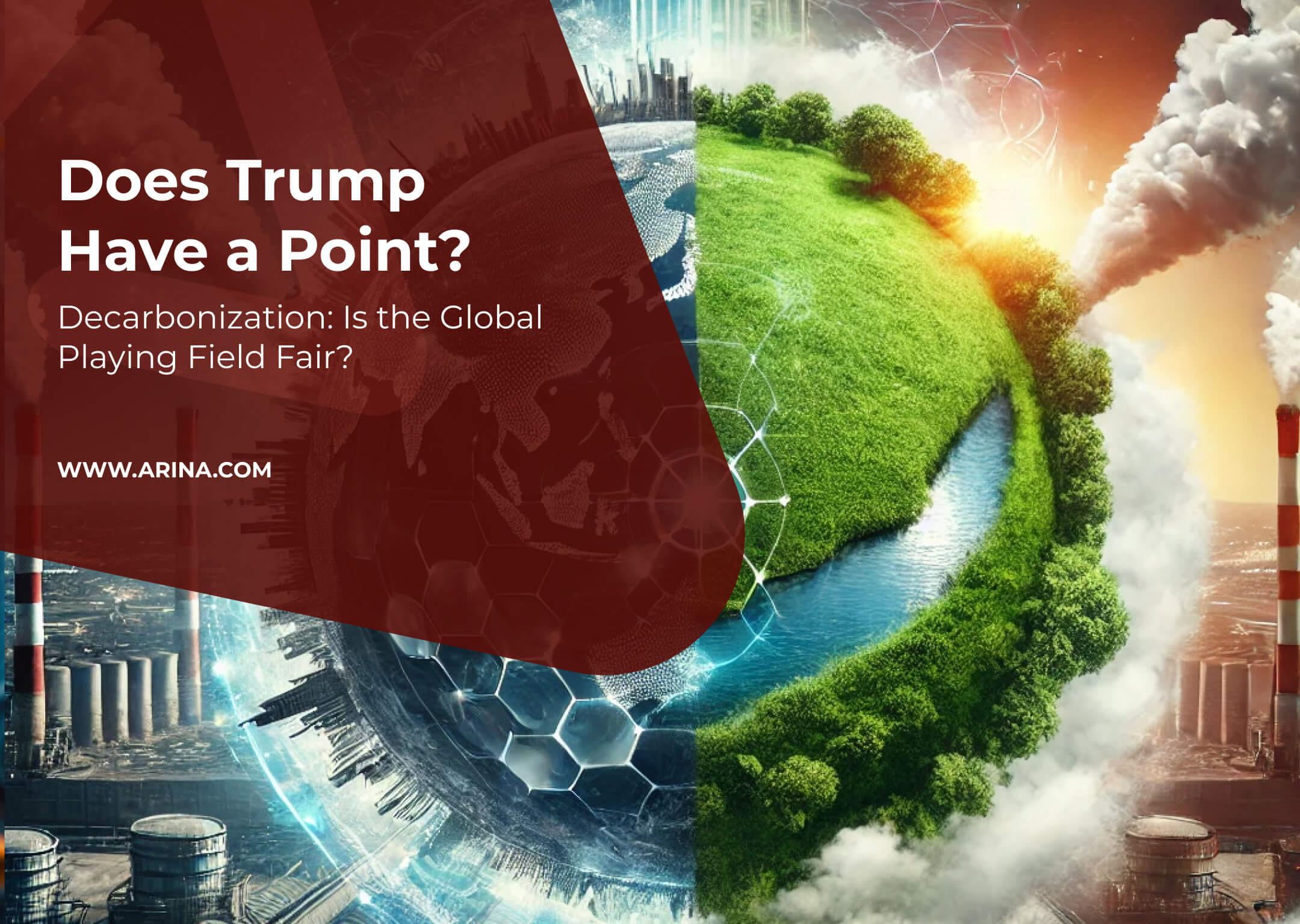
🌍 Decarbonization: Is the Global Playing Field Fair? 🌱
In a controversial speech, President Trump criticized the uneven burden of decarbonization, pointing to countries like China and India producing significant carbon emissions while reaping economic benefits by avoiding the costly transition to green technologies.
This raises a critical question: Is the global decarbonization effort inherently unfair?
Let’s break it down.
🔥 The Unequal Cost of Climate Action
1️⃣ The First-World Dilemma:
Developed nations lead in adopting and funding advanced decarbonization technologies. But while they bear the financial burden, emerging economies like China and India continue to expand their industries, often relying on fossil fuels. The result? Economic growth for them, and rising costs for everyone else.
2️⃣ The Global Commons Paradox:
The atmosphere doesn’t recognize borders. Even if developed countries achieve net-zero emissions, it won’t significantly impact global warming unless major emitters like China and India do the same. Yet, these nations argue that developed countries—historically responsible for most emissions—should shoulder more responsibility.
3️⃣ Market Competition and Fairness:
Green technologies come with higher costs. Companies in nations prioritizing decarbonization often struggle to compete with cheaper products from countries where carbon costs are ignored. Is this a fair trade-off in a global market?
💡 Does Trump Have a Point?
It’s easy to dismiss Trump’s remarks as anti-environmental, but they highlight an uncomfortable truth: without global coordination, decarbonization risks becoming a costly endeavor for only a few, while others benefit without contributing.
🔬 Is There a Solution?
At ARINA Group, we believe the answer lies in shared responsibility and innovation:
1️⃣ Global Carbon Pricing:
Implementing a universal carbon pricing system ensures that all countries internalize the cost of their emissions, leveling the economic playing field. This would discourage “carbon dumping” and incentivize cleaner production globally.
2️⃣ Technology Sharing:
Developed nations can subsidize and share green technologies with emerging economies. This reduces the cost barrier and ensures a collective shift toward sustainability without stalling economic growth.
3️⃣ Decarbonization Credits:
Introduce an international decarbonization credit system where countries with advanced technologies can partner with high-emission countries to offset emissions collaboratively.
4️⃣ Regional Agreements:
While global consensus is challenging, regional agreements can encourage cooperation and provide a testing ground for scalable solutions.
🌱 ARINA Approach
At ARINA, we’re working to develop solutions that transcend borders:
Advanced Engineering for All: We design sustainable systems that are cost-effective and scalable, making decarbonization accessible even for resource-constrained industries.
Knowledge Transfer: By leveraging technologies like BIM and digital twins, we help industries in any country reduce emissions without compromising on efficiency or profitability.
Collaboration, Not Isolation: Sustainability is a shared journey. We believe in partnerships that prioritize collective progress over competition.
🌟 Time for Honest Conversations
Trump’s remarks may be divisive, but they open the door for critical dialogue.
Can global decarbonization succeed without equitable contributions?
How do we balance economic growth with environmental responsibility?
Is it possible to ensure fair competition while addressing the climate crisis?
These are the hard questions we need to answer. At ARINA, we’re committed to finding actionable solutions that bring industries together to tackle these challenges head-on.
🗣️ What are your thoughts? Is the current decarbonization effort fair? What solutions can ensure global cooperation? Let’s discuss!






